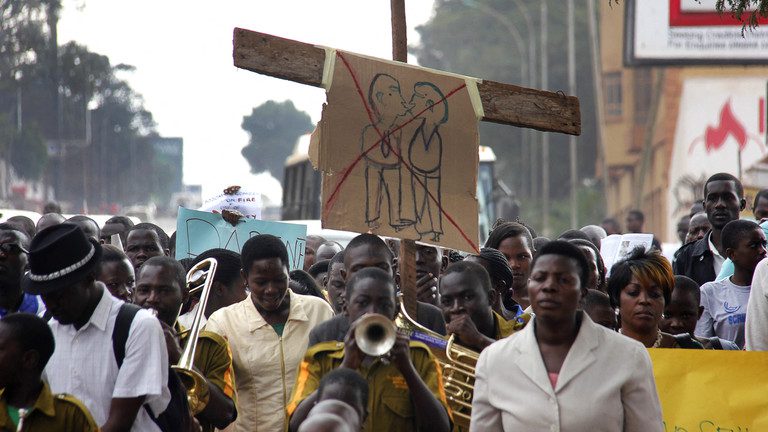Africa
African Catholic bishops do not approve of LGBTQ union blessings

The Catholic Bishops Conference of Nigeria (CBCN) and the Ghana Catholic Bishops Conference (GCBC) have both made it clear in separate statements that they will not allow priests to bless same-sex unions, despite Pope Francis’ recent declaration permitting such rituals under certain circumstances.
In their statements, the CBCN and GCBC emphasized that blessing homosexual marriages goes against the divine law and teachings of the church.
The CBCN stated, “The teaching of the Catholic Church on marriage remains unchanged. There is no possibility of blessing same-sex unions and activities as it would contradict God’s law, the teachings of the Church, and the laws of our nation.”
Similarly, the bishops of Ghana, who have long opposed homosexuality, reiterated that priests cannot bless same-sex unions or marriages.
While the Vatican’s doctrinal office issued a document encouraging priests to bless same-sex couples on a case-by-case basis, it was made clear that this process does not replace the sacrament of heterosexual marriage and cannot take place during a regular church ceremony or liturgy. The Vatican’s intention was to reflect that “God welcomes all” types of people, but the blessings would not legitimize “irregular” situations or relationships, according to Roman Catholic doctrines.
The publication of this document sparked public outrage and controversy, with a group of British priests even arguing against it. The UK’s Confraternity of Catholic Clergy, consisting of 500 priests, issued a letter insisting that the Church’s traditional values are “unchangeable.”
Catholic doctrine teaches that while experiencing attraction towards individuals of the same sex is not considered a sin, engaging in homosexual acts is deemed as sinful. Since assuming the role of Pope in 2013, Pope Francis has taken measures to create a more inclusive environment for LGBTQ individuals within the Church.
However, the Ghanaian and Nigerian bishops’ organizations, while maintaining their opposition to homosexuality, have expressed their belief that the recent approval by the Pope to bless same-sex marriages has been misinterpreted.
According to the organizations, the blessing mentioned in the declaration refers to prayers that individuals may seek. These prayers are intended to guide those who are in a state of sin towards conversion. Therefore, the prayers offered for individuals in same-sex relationships are not meant to endorse their lifestyle, but rather to guide them towards a path of conversion.
It is important to note that both Ghanaian and Nigerian laws have varying degrees of criminalization against LGBTQ unions.
In Nigeria, the Same-Sex Marriage Prohibition Act of 2013 imposes a 14-year prison sentence for individuals found guilty. Those who participate in or facilitate the solemnization of a same-sex marriage in the country can face a ten-year imprisonment. In August, over 100 individuals suspected of being homosexuals were arrested by the police for attending a same-sex wedding event in Delta state.
Similarly, lawmakers in Ghana have recently passed a motion to strengthen laws against homosexuality. This has been condemned by human rights organizations like Amnesty International, who argue that it violates the civil rights protected by the country’s constitution.
In light of these developments, both US Vice President Kamala Harris and French Minister for International Partnerships Chrysoula Zacharopoulou have urged Ghana and other African nations to follow the example set by Western countries in promoting gay rights.
